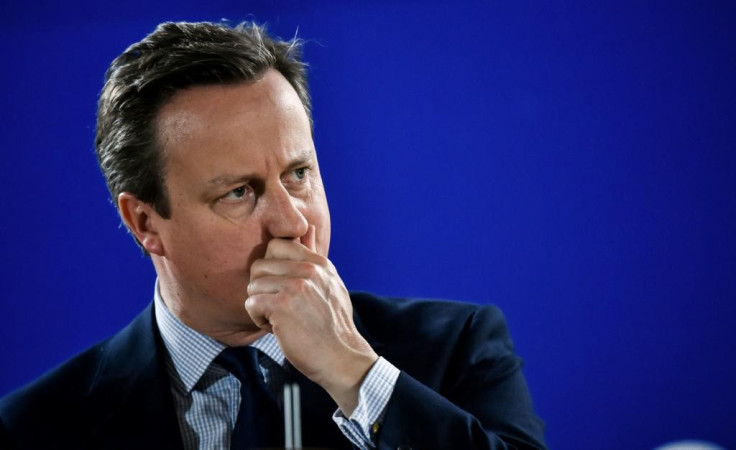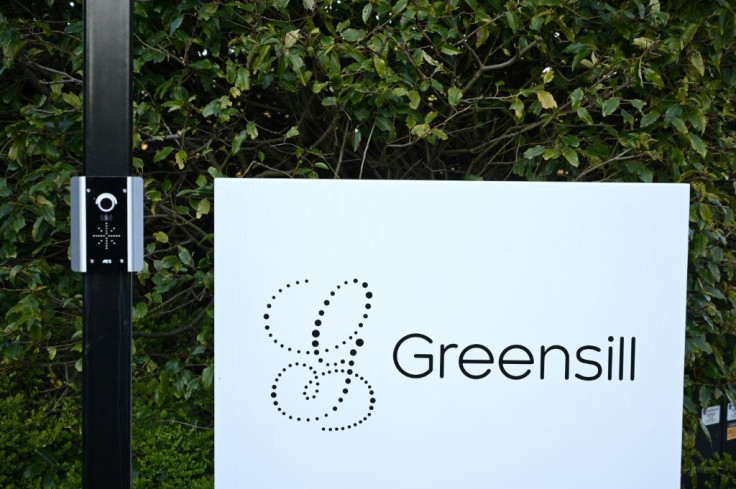Ex-UK leader Cameron says he acted 'in public good' in Greensill lobbying
Cameron, in power from 2010 to 2016, has faced a series of damaging claims he improperly and excessively lobbied former government colleagues to support Greensill
Britain's former prime minister David Cameron on Thursday insisted he acted appropriately in controversial lobbying for the collapsed finance group Greensill Capital, as British lawmakers quizzed him following months of scandal and revelation about his actions.
The former Conservative leader, who was an adviser to the company and reportedly held lucrative stock options that are now worthless, appeared before a parliamentary committee probing his lobbying ahead of the loan company's collapse in March.
The firm's implosion threatens about 50,000 jobs at companies around the world that relied on its financing for their supply chains, and has rekindled the debate on the close ties between the upper echelons of British politics and finance.
"I really believed in the solution that we had and we were putting to government that I thought would make a difference," Cameron told the virtual Treasury Committee hearing, in his first public appearance addressing the scandal.
"I would never put forward something that I didn't think was absolutely in the interests of the public good," he said, adding he was motivated to provide a solution for small business during "exceptional times".
"I did not believe in March or April, when I was doing this contact, that there was a risk of Greensill falling over."
Australian banker Lex Greensill, the founder of the financial company, appeared before the same cross-party committee on Tuesday and insisted he took "full responsibility" for its collapse.

But he refused to be drawn over its links to UK government lobbying.
Cameron, in power from 2010 to 2016, has faced a series of damaging claims he improperly and excessively lobbied former government colleagues seeking support for the stricken London-headquartered company early in the pandemic.
In documents published Tuesday by the committee, the ex-prime minister and his office staff sent ministers and officials dozens of emails, texts and WhatsApp messages last year relating to Greensill, bypassing official channels.
One day saw 16 messages sent to six different officials or minister.
Finance minister Rishi Sunak has previously said he "pressured" his staff to look into Cameron's requests, but insisted they independently assessed the proposals and ultimately rejected them.

The controversy deepened last month after it emerged Cameron had granted Lex Greensill inside access to the Downing Street machine during his spell in power.
Current Prime Minister Boris Johnson last month ordered a senior lawyer to investigate the entire episode.
Cameron said he had reflected on his lobbying efforts and conceded that Britain's former leaders should be held to a higher standard than other ex-politicians and he would not repeat them.
"I do understand that ex-prime ministers have to be very careful with what they do," he added.
"There are lessons for me to learn and in future the single formal email or letter would be more appropriate."
Greensill, the 44-year-old son of sugar cane planters, founded the company -- which specialises in short-term loans to businesses to pay their suppliers -- in 2011.
It bypassed strict regulations forced upon traditional banks, and granted short-term corporate loans via a complex and opaque business model that ultimately sparked its demise.
When the firm filed for insolvency two months ago, it had an array of clients including steel empire GFG Alliance which employs thousands of workers worldwide.
It emerged Tuesday that UK regulator the Financial Conduct Authority is formally investigating Greensill after allegations that were "potentially criminal in nature".
Cameron said he consulted widely before agreeing to join the firm in 2018 on a "generous" salary, that included share options, to advise them on growing the business and not as a lobbyist.
The former leader, who said his exact renumeration was "a private matter", attended and contributed to board meetings but insisted he was not a so-called shadow director.
"I made a choice to work for a business which I hoped would be a UK fin tech (financial technology) success story," he added, calling its collapse "deeply regrettable".
"What I don't accept is that it was a business that was predetermined to fail."
Copyright AFP. All rights reserved.
© Copyright IBTimes 2025. All rights reserved.





















